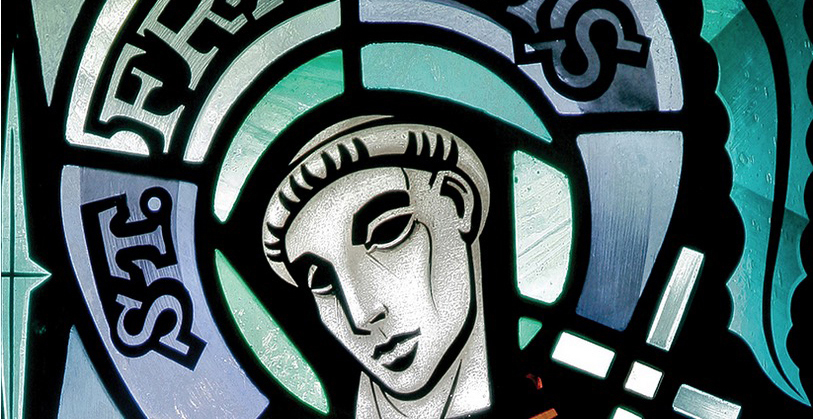Unbounded charity and unfettered zeal for the Faith define St. Francis Solanus’ missionary work to South America. A Franciscan known as the “Wonderworker of the New World,” who healed the sick and tamed wild animals, St. Francis Solanus was a passionate preacher who desired nothing more than to win souls for Christ.
Setting aside a life of comfort and prestige as the son of wealthy parents, St. Francis Solanus took the Franciscan habit and pledged himself to their strict observance of poverty. Ordained a priest in 1576, he proved to be a man of many talents and served as novice master before he became renowned for his phenomenal preaching abilities. A few years later, he took ill from the plague after spending a good portion of his ministry caring for and ministering to victims of the disease.
Around age 40, he intended to be sent to Africa as a missionary; however, plans soon changed. In response to Spanish King Philip II’s request to send missionaries to Peru, he was sent to South America.
St. Francis Solanus is often depicted holding a violin, which he used when ministering to the indigenous peoples, and he would often play it before the Blessed Sacrament.
En route, the boat on which the saint was traveling was shipwrecked. They decided to save the passengers and crew but to abandon a host of African slaves in the wrecked boat. St. Francis Solanus, who had been instructing them in the Faith during the journey, refused to leave their side, knowing full well that the boat was sinking. Staying with the slaves, he offered them baptism. Some were lost when the boat split apart, but he remained with the rest until they were rescued.
For over two decades in South America, St. Francis Solanus labored tirelessly to spread the Gospel throughout the continent. His travels throughout parts of Peru, Paraguay, Bolivia and Argentina were not easy, given the dangers in store in such an undeveloped and rugged terrain.
As with any missionary, it was vital to learn the native languages to be most successful, and St. Francis Solanus was competent in that regard. It is reported that he had the gift of tongues — an outpouring of the Holy Spirit first given to the Apostles at Pentecost.
While in Argentina, St. Francis Solanus performed mass baptisms and worked for the acceptance of Christianity by the people. He toiled to advance the rights and dignity of the natives, speaking out against their poor treatment by the Spaniards who profited greatly by exploiting them.
St. Francis Solanus was truly a pastor to the native peoples, engaging and accompanying them through life. He would spend time with the tribes, bringing his violin and joining them in dance. For this reason he is often depicted carrying the stringed instrument in his hands.
Moving back to Lima, Peru around the turn of the century, St. Francis Solanus entered a new phase of ministry to the Spaniards who settled in Peru. His sermons were marked by fire and brimstone, preaching about the end of the world and judgment. The viceroy had to intervene, asking him to moderate his preaching. He relented little, marching down the streets of Lima with a crucifix in hand, entering places of ill-repute and calling the people to a better way of life.
St. Francis Solanus also was known for his sense of humor, and he would raise eyebrows when, on his way to a Marian shrine, the celibate priest would remark that he was on his way to serenade a most beautiful lady.
Confined to an infirmary for his last two years, St. Francis Solanus died on July 14, 1610, and is revered throughout the continent he evangelized.
His feast day is July 14.
Michael R. Heinlein is editor of Simply Catholic. Follow him on Twitter at @HeinleinMichael.

